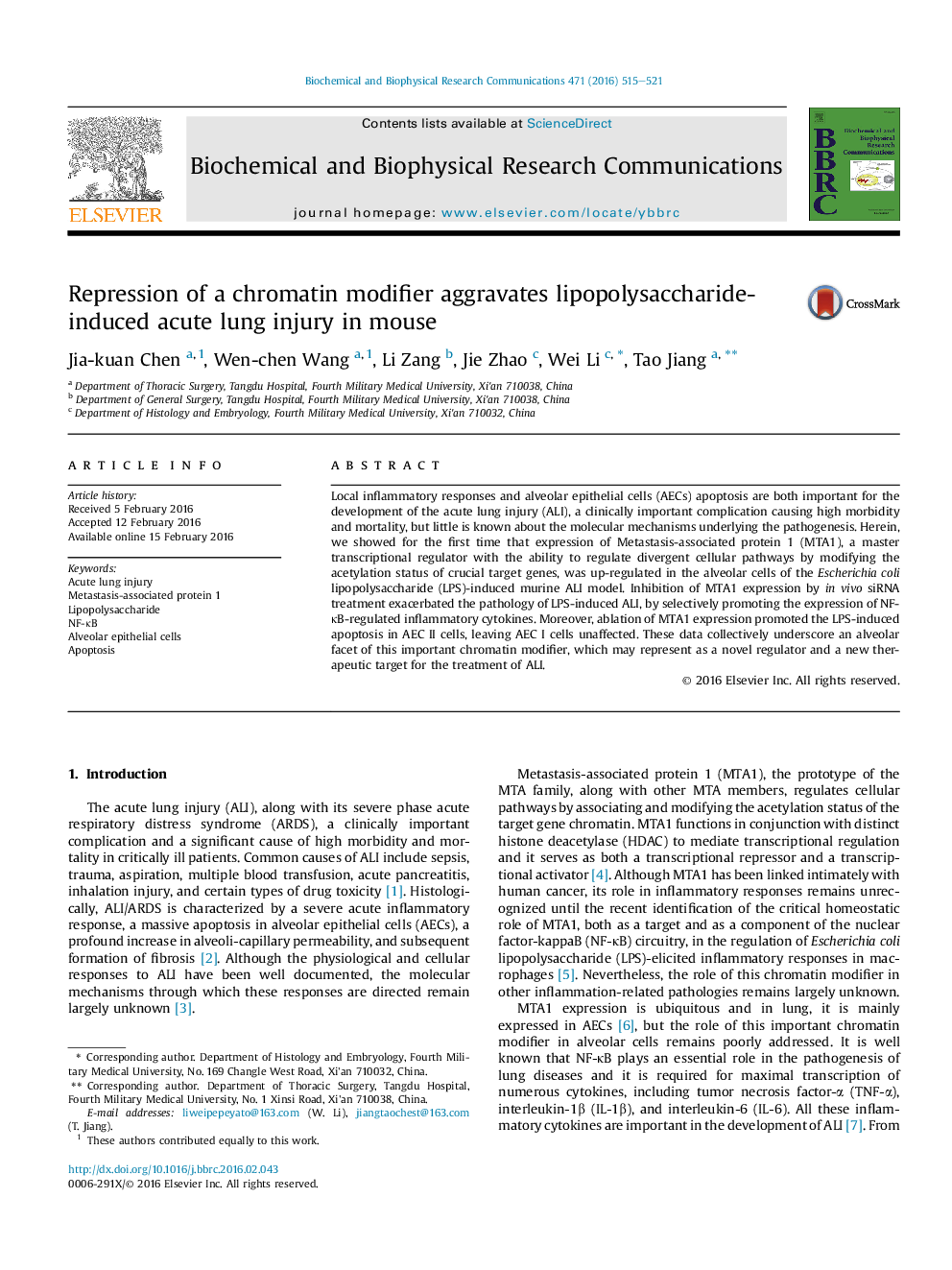| Article ID | Journal | Published Year | Pages | File Type |
|---|---|---|---|---|
| 10748334 | Biochemical and Biophysical Research Communications | 2016 | 7 Pages |
Abstract
Local inflammatory responses and alveolar epithelial cells (AECs) apoptosis are both important for the development of the acute lung injury (ALI), a clinically important complication causing high morbidity and mortality, but little is known about the molecular mechanisms underlying the pathogenesis. Herein, we showed for the first time that expression of Metastasis-associated protein 1 (MTA1), a master transcriptional regulator with the ability to regulate divergent cellular pathways by modifying the acetylation status of crucial target genes, was up-regulated in the alveolar cells of the Escherichia coli lipopolysaccharide (LPS)-induced murine ALI model. Inhibition of MTA1 expression by in vivo siRNA treatment exacerbated the pathology of LPS-induced ALI, by selectively promoting the expression of NF-κB-regulated inflammatory cytokines. Moreover, ablation of MTA1 expression promoted the LPS-induced apoptosis in AEC II cells, leaving AEC I cells unaffected. These data collectively underscore an alveolar facet of this important chromatin modifier, which may represent as a novel regulator and a new therapeutic target for the treatment of ALI.
Keywords
Related Topics
Life Sciences
Biochemistry, Genetics and Molecular Biology
Biochemistry
Authors
Jia-kuan Chen, Wen-chen Wang, Li Zang, Jie Zhao, Wei Li, Tao Jiang,
